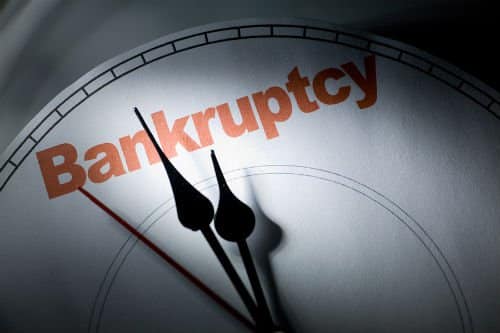If the current economic conditions are still impacting your finances, you may want to declare bankruptcy as a way to get a fresh start. In recent years, bankruptcy filings have been on the rise, with a notable increase of 16.2% in 2024 compared to the previous year, reaching a total of 504,112 filings. This trend is expected to continue into 2025, with year-to-date filings already showing a significant increase. If you think you might be part of these statistics, it’s crucial to understand all the effects of declaring bankruptcy. While filing for bankruptcy can make economic sense in the short term, it also has long-term repercussions that can affect your financial situation.
Here are six things you need to do before you declare bankruptcy:
- Take a good look at your finances. Even though filing bankruptcy seems like the ultimate “fix” for a bad financial situation, you may be able to find some better, alternative solutions for getting your finances in order. Calculate your net worth and tally up your expenses, income and debts to determine the extent of your financial problems. Sometimes taking a very close look at your finances can help you get a fresh perspective on the situation and help you map out a better plan.
- Notify your creditors and debt collectors. If you do decide to go ahead and file for bankruptcy, you have to notify your creditors and debt collectors that you are doing so. This will stop them from contacting you about your outstanding debt. Take the time to go through your accounts and get in touch with each and every one of your creditors and debt collectors before your bankruptcy petition is filed in court.
- Enroll in a credit counseling course. You will be required to take a credit counseling course from a government-approved counseling agency as part of your bankruptcy filing requirements. Get this done as soon as possible so that you don’t have to worry about it later. Failing to complete this course can delay the filing process and will complicate things. Credit counseling can increase your financial literacy and provide you with some resources and tools to reduce the need for filing bankruptcy again at a later date. Here’s a tip for our Canadian readers. In some places, like Manitoba CA, specific financial regulations may influence when to declare bankruptcy, so understanding these requirements can help you navigate the process more effectively.
- Hire a good bankruptcy lawyer. Filing for bankruptcy on your own can be a tricky process, and you may not have answers to all the questions you have about this process when you need them. Seek out the help of an experienced bankruptcy attorney who can review your situation and provide some guidance on the whole process.
- Keep making payment on any vehicles you want to keep. If you have outstanding car loans, don’t let the loans fall into default or they will be repossessed when you file bankruptcy. Find a way to keep making payments on those loans so that you can keep your vehicle and soon own it as an asset.
- Consider all of the effects of filing bankruptcy. Remember that bankruptcy will stay on your credit report for up to ten years and having this on your record can put you at a disadvantage when it comes to obtaining a home loan, getting a credit card or opening up new lines of credit. Educate yourself on all of the ramifications of filing bankruptcy so that you really are making the best decision for yourself and your family.
Additional Considerations:
-
Alternatives to Bankruptcy: Before opting to declare bankruptcy, consider alternatives like debt management plans or credit counseling services. These can help you avoid the long-term effects of bankruptcy on your credit score and financial stability.
-
Long-Term Impact: Understand that bankruptcy can lead to a significant drop in credit scores and limit access to new credit, which may impact future financial opportunities.
In conclusion, while bankruptcy can provide a fresh start, it’s essential to approach this decision with a thorough understanding of its implications. By carefully evaluating your financial situation, exploring alternatives, and seeking professional advice, you can make an informed decision that aligns with your long-term financial goals. Ultimately, navigating financial challenges requires patience, resilience, and a commitment to rebuilding your financial foundation.










